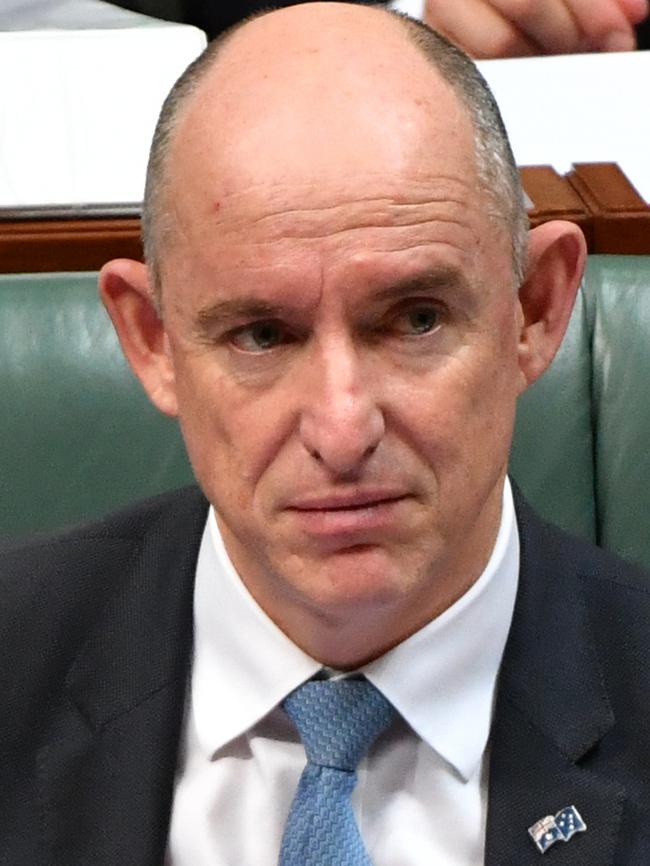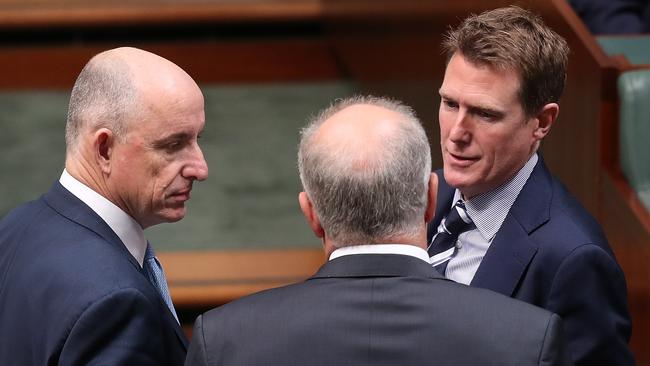James Campbell: Uncovering the real scandal of robodebt
Australia’s a hysterical political culture means when everything is a scandal, nothing is a scandal — even something as egregious as the robodebt fiasco. But make no mistake, this was a big one, writes James Campbell.
Let’s start this week with a quick quiz.
Which is the bigger scandal?
(A) In which a federal minister — or his office gives false figures to The Daily Telegraph about the travel spending of the Sydney Council prompting Labor to report him to the cops and the Prime Minister to call the Police Commissioner to ask about the “investigation”.
Or (B)in which, after three years, the federal government essentially admits in court that it had no lawful basis for attempting to take hundreds of millions of dollars from hundreds of thousands of people, money that will now have to be repaid — with interest.
If you answered (A), congratulations. You’ve obviously got the right stuff to work in the office of the Opposition Leader Anthony Albanese, who has spent the week in parliament working himself into a lather about Angus Taylor while failing to ask a single question on (B), the robodebt fiasco.
The problem with Australia’s hysterical political culture is that when everything is a scandal, nothing is a scandal — even something as egregious as robodebt. And, make no mistake, a scandal is what this is. A big one.
A scandal that if ministerial responsibility meant anything, would have cost Stuart Robert or Christian Porter their jobs.

Because, as I wrote back in September, it is hard to overstate how much of a frolic Centrelink has been on here.
To explain: robodebts were calculated by taking a person’s gross annual income from the Australian Taxation Office and dividing it by 26 to calculate what is called an “apportioned actual income” which was then matched with annual payments from Centrelink.
But the whole concept was flawed because many — if not most — of the people affected didn’t earn their incomes equally across a financial year.
So, for example, someone could have received Austudy in one half of a financial year while they were studying, then earned a good income in the second half after they graduated.
Averaging out their income across the whole year to suggest they were not entitled to the money they received while they were a student was nonsense.
They might have received payments they were not entitled to during some fortnights.
But there was no way to know that because Centrelink had destroyed its records. In some cases, these alleged debts were a decade old.
How could people have been expected to prove what they were doing in each fortnight 10 years ago?
It was so crude as to be laughable. But it was actually worse than that as Justice Jennifer Davies makes clear in the notes she has attached to her order bringing the Amato case to end.
The plaintiff in this test case brought by Victorian Legal Aid had sued in the Federal Court to have her robodebt set aside.
The Commonwealth folded on the substantive claim as they did in every other case that was brought to court, but there was a still an argument to be had over whether interest was owing. Then a bit over week ago the government folded on that point too.
Davies makes three points.
First, the government made an assumption in calculating the debt that the total amount earned by Amato had been earned in equal fortnightly amounts.

Second, there was “no probative material” to support this assumption.
And third, there was “probative material” that the claim was wrong.
In other words, they weren’t just demanding money without a shred of evidence that they were entitled to it, they pressed ahead with this demand even after they were given evidence that they weren’t entitled to the money.
Think about that for a minute. Now contemplate the scale of the scandal. Since robodebt began in 2015, there have been 900,000 reviews completed which allegedly turned up 743,000 overpayments.
Centrelink has attempted to recover 570,000 of these alleged debts which would bring in
about $2 billion. Of this, so far $785 million has been raised.
Another $725 million is in the process of being recovered through repayment agreements which, in many cases, involve current welfare recipients having their payments docked.
The government also says action — it is unclear what action — is under way to recover a further $500 million.
The question now, given that the government has thrown in the towel and admitted that using this form of data matching it cannot prove this money was ever owed,
is how much of it is it going to have to pay back — with interest?
So far, Government Services Minister Stuart Robert has only admitted a “small cohort” is affected, but according to The Guardian, “human services staff have been told that up to 600,000 of the 900,000 robodebts that have been issued used income-averaging and will need to be reassessed, and more than 220,000 may require refunds or waivers”.
We know that the average “overpayment” is about $3000 so, if The Guardian’s figure is right, then about $660 million will end up being repaid. Plus interest.
Oh, and according to an answer in Senate estimates, the “integrity protection process” has already cost about $606 million to run.
But this is Australia. No one is going to lose their job.
James Campbell is a Herald Sun investigations editor

